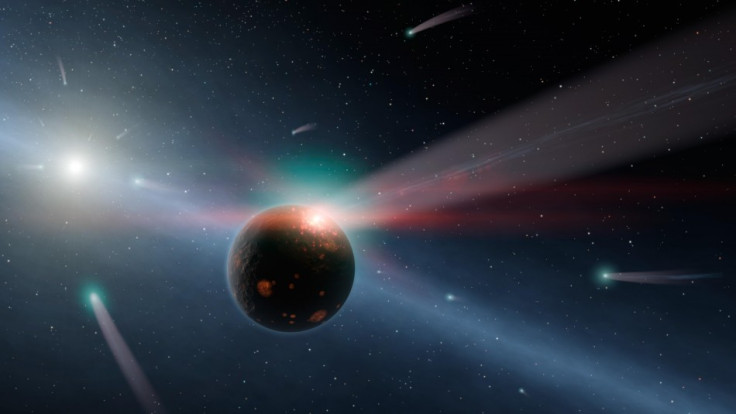Space laser could answer our renewable energy problems, say UK scientists

In an experiment reminiscent of the death star in Star Wars, scientists in the UK are building a space laser which will blast beams of energy to the Earth, according to the Times.
Fortunately, this space laser is entirely peaceful because the beams will provide a new source of renewable energy.
Dr Adrian Quarterman from the University of Dundee is building a satellite with mirrors that will orbit the Earth collecting sunlight to be converted into a laser that can be beamed to Earth and collected by solar panels.
Scientists have sought to put mirrors in space to intercept the sunlight which passes by the Earth and redirect it before, the Times reported. However, they have been unable to find a way to capture the energy and transport it to somewhere it can be harnessed.
Quarterman is working on a laser that uses semiconductors to convert more solar energy into useful energy.
"Pretty much all space laser plans to date have been based on crystal-type lasers," he said to the Times. "They struggle to absorb much of the sunlight present; only certain wavelengths work. Semiconductors make far better use of the sun, absorbing pretty much the whole solar spectrum."
Swarms of satellites
Quartermann had a paper published in the peer-reviewed journal Optica earlier this year outlining his initial experiments and is now aiming to conduct further experiments in Portugal.
Although the project is in its infancy, he hopes to convince satellite companies to eventually create a constellation of hundreds of small satellites, each with mirrors and optics to harvest sun across a wide area, that would combine to create a concentrated beam of sunlight, he told the Times.
Electricity companies have already shown an interest in the potential for the lasers to provide a limitless supply of renewable energy, according to the Times.
Although the potential of the laser is unquestionable, the potential for the laser to be used to inflict damage is real.
Quarterman accepts that if lots of the satellites ended up in space, you "might possibly have to worry a bit about who is in control".
© Copyright IBTimes 2024. All rights reserved.





